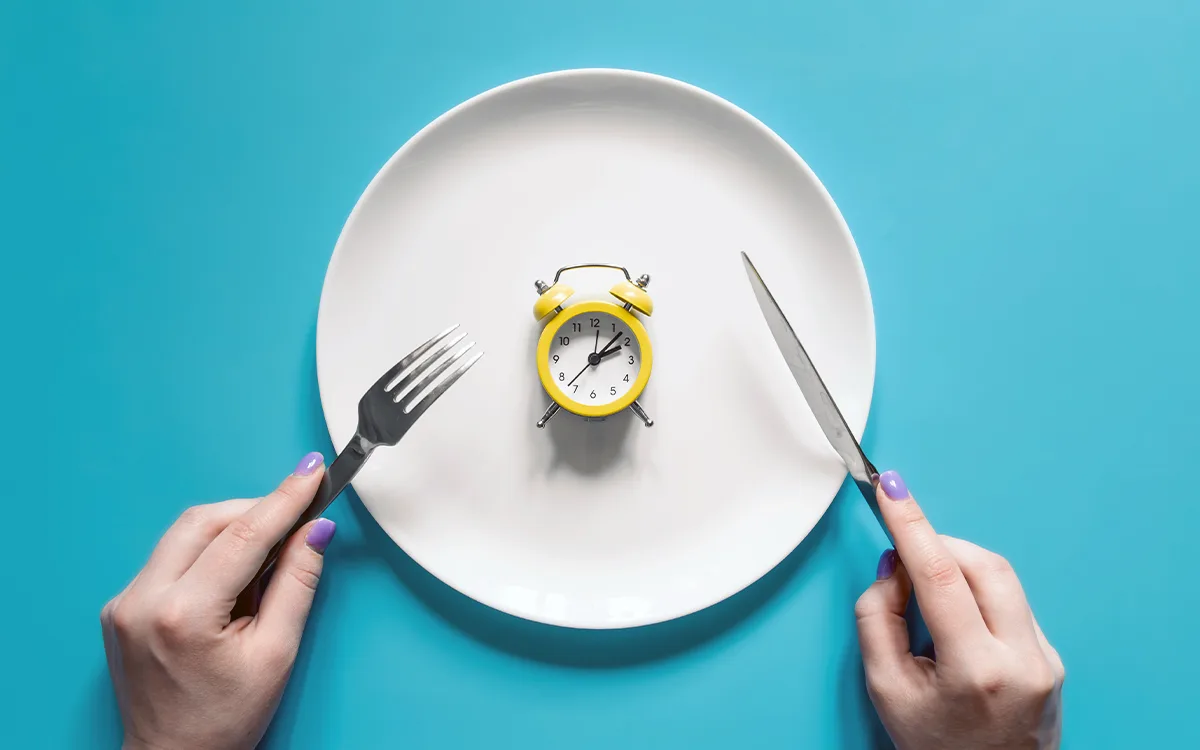Have you ever wondered why you feel hungrier at certain times of the day or why late-night snacks feel so tempting? It turns out your body’s internal clock, known as the circadian rhythm, plays a major role in your eating patterns. Your body clock not only affects when you feel hungry but also how your body processes food. The time of day you eat may impact digestion, metabolism, and even weight changes.
Understanding the connection between your body clock and eating habits can help you align your meals with your natural rhythm. This way, you may help maintain energy levels, manage weight, and support overall well-being.
The Circadian Rhythm and Eating Habits
The circadian rhythm is the internal 24-hour clock that regulates your sleep-wake cycle, body temperature, and even blood pressure. This rhythm is influenced by light and darkness, helping the body know when to sleep and wake up. But it also affects eating patterns, as it signals when your body is ready to digest food efficiently.
Eating at the right times, according to your body’s rhythm, may help with digestion and energy use. When you eat at irregular hours—especially late at night—your body may struggle to process food properly, potentially leading to weight fluctuations and discomforts.
The Impact of Eating at the Wrong Time
Your body follows a natural schedule, and disrupting it can affect your health in various ways:
- Weight and Metabolism
Your metabolism works more efficiently during the day when your body temperature is higher. Eating most of your calories earlier in the day rather than at night may help your body use energy more effectively. - Shift Work and Jet Lag
People who work night shifts or travel across time zones often eat at odd hours, which can disrupt the body’s circadian clock. This may lead to changes in weight, digestion, and energy levels. - Blood Pressure and Digestion
Late-night meals might influence blood pressure and digestion, as the body isn’t as active during the night. Eating meals earlier in the day may help maintain steady energy and support digestion.
Time-Restricted Eating: Aligning Meals with Your Clock
Time-restricted eating is a pattern that follows the body’s natural rhythm by limiting food intake to a specific time frame, often within 8-12 hours during the day. Many people find that eating within this window aligns better with their metabolism and energy levels.
For example, if you start eating at 8 a.m. and finish by 6 p.m., your body can process food more effectively than if you eat late at night. This approach works in harmony with the body clock and may help maintain healthy digestion and weight.
Meal Timing and Body Temperature
Your body’s temperature also changes throughout the day, influencing how food is processed. In the morning and early afternoon, body temperature is higher, making digestion more efficient. This is why a balanced breakfast and lunch can help maintain energy and support metabolism.
On the other hand, eating heavy meals late at night when body temperature drops may slow digestion, leading to discomfort and sluggishness the next day.
Eating with Your Body Clock: A Simple Guide
To align your diet with your body clock, consider these tips:
- Have a balanced breakfast: Eating in the morning when your body is naturally more active may help maintain energy for the day.
- Time your main meals earlier: Lunch should be the biggest meal of the day, as digestion is most efficient around midday.
- Limit late-night eating: Try to finish eating at least 2-3 hours before bedtime to allow proper digestion.
- Keep a consistent meal schedule: Eating meals at regular times each day helps your body maintain a stable rhythm.
- Adjust for shift work or jet lag: If you work night shifts or travel frequently, try to eat at the same time each day based on your new schedule to help your body adapt.
Conclusion
Your body clock plays a major role in how and when you eat. Aligning your meals with your natural rhythm may help maintain steady energy levels, digestion, and overall well-being. Instead of focusing only on what you eat, paying attention to when you eat can make a big difference in how your body responds to food. By understanding and working with your body’s internal clock, you can develop eating habits that support a healthier lifestyle.
Check Out This Blog: Is Blue Light Destroying Your Sleep? How to Fix Your Circadian Rhythm

